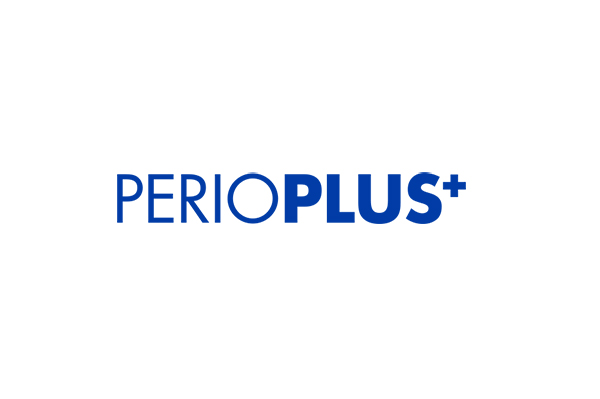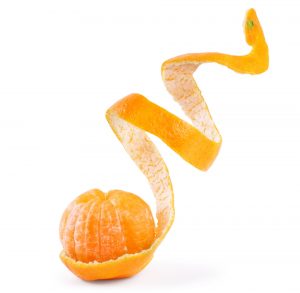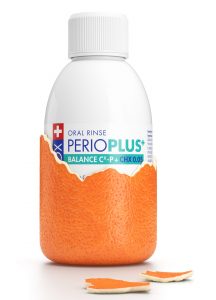An orange a day… Dawn Woodward Curaprox
Featured Products Promotional FeaturesPosted by: Dental Design 1st January 2020

 Most of us have heard that “an apple a day keeps the doctor away”, but what about an orange? This naturally sweet and juicy fruit is one of the most widely grown across the globe, and for good reason. Oranges have become popular due to their pleasant taste, wide variety of types and diversity of uses – from fruit juices and marmalades, to face masks, candied slices, and even as a natural cleaner within the home. Being low in calories and full of nutrients, oranges are not only renowned for promoting clear skin, but also for reducing our risk of many diseases as part of a healthy and balanced diet. It’s no wonder that oranges are highly sought after, typically accounting for over 50% of worldwide citrus fruit production.[i]
Most of us have heard that “an apple a day keeps the doctor away”, but what about an orange? This naturally sweet and juicy fruit is one of the most widely grown across the globe, and for good reason. Oranges have become popular due to their pleasant taste, wide variety of types and diversity of uses – from fruit juices and marmalades, to face masks, candied slices, and even as a natural cleaner within the home. Being low in calories and full of nutrients, oranges are not only renowned for promoting clear skin, but also for reducing our risk of many diseases as part of a healthy and balanced diet. It’s no wonder that oranges are highly sought after, typically accounting for over 50% of worldwide citrus fruit production.[i]
It has long been established that anti-oxidants play an important role in combatting free radicals. These are waste substances that – if not efficiently removed by the body – can cause oxidative stress and inflammation, which damages the body’s cells and ability to function properly. In fact, the detrimental impact of free radicals has been linked to several chronic conditions, including cardiovascular disease (CVD), diabetes and cancer. Fortunately, the body can take advantage of anti-oxidants to help stop or limit the damage caused by free radicals in order to boost overall health.[ii] Oranges are vital sources of the anti-oxidant, vitamin C, which can help strengthen the body’s immune system and protect against oxidative stress.[iii]
Some experts believe that vitamin C can prevent the build-up of arterial plaque – a condition known as atherosclerosis – which has the potential to play a significant role in reducing CVD risk.[iv] The results from a recently published study revealed that of the 13,421 participants tested, those with the highest vitamin C intake had a 70% lower risk of cardiovascular mortality.[v] This supports the theory that regular consumption of oranges could benefit people with heart complications or other systemic problems. A 2013 study found that the high levels of vitamin C and folic acid in some orange juices can reduce DNA damage and, therefore, the risk of cancer.[vi]
The fibre in oranges can also help improve the blood glucose, lipids and insulin levels in those with diabetes, which is perhaps why Diabetes.co.uk has listed oranges as a “superfood” that can aid in balancing blood pressure as well.[vii] Besides fibre, oranges contain large amounts of potassium, which can help support a healthy heart. One study suggests that drinking a glass of orange juice every day could inhibit the growth of kidney stones due to the high potassium and citrate content of oranges.[viii] These chemicals can also strengthen bones, protect them from deteriorating, and prevent the development of osteoporosis.[ix]
What is even more compelling about oranges is that they have been associated with improvements in mental health. According to the latest research, consuming citrus fruits like oranges can reduce an individual’s risk of developing conditions such as dementia or Alzheimer’s disease. Scientists in Japan studied over 13,000 middle-aged or elderly men and women over several years, and found that those who had a daily intake of citrus were 23% less likely to develop dementia, compared to those who consumed citrus less than twice a week.[x] Other studies have shown that consuming flavonoid-rich orange juice can also significantly enhance cognitive function and performance.[xi], [xii]
As oranges offer a wide range of health benefits, it’s no surprise that many industries have already begun to capitalise on the power of this citrus fruit. Some experts believe that even the chemicals contained within orange peels could be used in the future to create products ranging from plastic to paracetamol, thus helping to break our reliance on fossil fuels. Many cosmetic products already contain orange as a main ingredient designed to help reduce the signs of aging and improve the appearance of skin.

Within the oral healthcare industry, in particular, some companies have begun to use oranges to help patients improve their oral health. The revolutionary new range of Perio Plus+ mouth rinses contain CITROX®, which has been created using the bioflavonoids extracted from the dried, ground piths and pulp of bitter oranges. This anti-microbial, anti-oxidant, and anti-inflammatory substance has been combined with chlorhexidine (CHX) and other natural ingredients to create a powerful mouth rinse that can be used by patients with acute dental problems to combat plaque and protect the oral cavity against diseases. These include dental caries, gingivitis and periodontitis.
Although it may be small, the humble orange is a goldmine of nutrients. Not only does it make a healthy snack or a tasty addition to a meal, but it also has applications in other industries as a natural source of vitamins, fibre, potassium, and other health beneficial substances. If an apple keeps the doctor away, so too does an orange. Consider this next time you are picking from the fruit bowl.
For more information please call 01480 862084, email info@curaprox.co.uk
or visit www.curaprox.co.uk
[i] Baker, P. and Morgan, A. (2012) Final Annex Report 8: UK Citrus Fruit Imports. DEFRA UK. Link: http://randd.defra.gov.uk/Document.aspx?Document=10400_Annex08_Citrusimports_final.pdf. [Last accessed: 02/07/19].
[ii] Selvaraj, T. and Sarathchandra, G. (2018) Antioxidants – A Pharmacological Overview. Advances in Analytical and Pharmaceutical Chemistry. 102. DOI: 10.29011/AAPC-102.100002. Link: https://www.gavinpublishers.com/admin/assets/articles_pdf/1540874659article_pdf382629181.pdf. [Last accessed: 02.07.19].
[iii] Carr, A. C. and Maggini, S. (2017) Vitamin C and Immune Function. Nutrients. 9(11): 1211. Link: https://doi.org/10.3390/nu9111211. [Last accessed: 02.07.19].
[iv] Moser, M. A. and Chun, O. K. (2016) Vitamin C and Heart Health: A Review Based on Findings from Epidemiologic Studies. International Journal of Molecular Sciences. 17(8): 1328. doi:10.3390/ijms17081328. Link: https://www.ncbi.nlm.nih.gov/pmc/articles/PMC5000725/. [Last accessed: 02.07.19].
[v] Martín-Calvo, N. and Martínez-González, M. A. (2017) Vitamin C Intake is Inversely Associated with Cardiovascular Mortality in a Cohort of Spanish Graduates: The SUN Project. Nutrients. 9(9): 954. Link: https://doi.org/10.3390/nu9090954. [Last accessed: 02.07.19].
[vi] Franke, S. I. R., Guecheva, T. N., Henriques, J. A. P. and Prá, D. (2013) Orange Juice and Cancer Chemoprevention. Nutrition and Cancer. 1-11. doi: 10.1080/01635581.2013.817594. Link: https://pdfs.semanticscholar.org/e7aa/d55b8b7371a57759da38dfd62d546250be96.pdf. [Last accessed: 02.07.19].
[vii] Diabetes.co.uk. (2019) Diabetes ‘Superfoods’. Link: https://www.diabetes.co.uk/food/diabetes-superfoods.html. [Last accessed: 02.07.19].
[viii] Odvina, C. V. (2006) Comparative Value of Orange Juice versus Lemonade in Reducing Stone-Forming Risk. Clin J Am Soc Nephrol. 1: 1296-1274. Link: https://cjasn.asnjournals.org/content/clinjasn/1/6/1269.full.pdf. [Last accessed: 02.07.19].
[ix] Sacco, S. M., Horcajada, M. N. and Offord, E. (2013) Phytonutrients for bone health during ageing. British Journal of Clinical Pharmacology. 75(3): 697–707. doi:10.1111/bcp.12033. Link: https://www.ncbi.nlm.nih.gov/pmc/articles/PMC3575936/. [Last accessed: 02.07.19].
[x] Zhang, S., Tomata, Y., Sugiyama, K., Sugawara, Y. and Tsuji, I. (2017) Citrus consumption and incident dementia in elderly Japanese: the Ohsaki Cohort 2006 Study. British Journal of Nutrition. 117: 1174-1180. doi:10.1017/S000711451700109X. Link: https://www.cambridge.org/core/services/aop-cambridge-core/content/view/70454BC61369CDB27359A64D690A13DB/S000711451700109Xa.pdf/citrus_consumption_and_incident_dementia_in_elderly_japanese_the_ohsaki_cohort_2006_study.pdf. [Last accessed: 02.07.19].
[xi] Alharbi, M. H., Lamport, D. J., Dodd, G. F., Saunders, C., Harkness, L., Butler, L. T. and Spencer, J. P. (2016) Flavonoid-rich orange juice is associated with acute improvements in cognitive function in healthy middle-aged males. European Journal of Nutrition. 55(6): 2021–2029. doi:10.1007/s00394-015-1016-9. Link: https://www.ncbi.nlm.nih.gov/pmc/articles/PMC5009163/. [Last accessed: 02.07.19].
[xii] Nurk, E., Refsum, H., Drevon, C. A., Tell, G. S., Nygaard, H. A., Engedal, K. and Smith, A. D. (2010) Cognitive performance among the elderly in relation to the intake of plant foods: The Hordaland Health Study. British Journal or Nutrition. 104: 1190-1201. doi:10.1017/S0007114510001807. Link: https://www.cambridge.org/core/services/aop-cambridge-core/content/view/A87CE87D1428724A050659E2AE2FEF4B/S0007114510001807a.pdf/cognitive_performance_among_the_elderly_in_relation_to_the_intake_of_plant_foods_the_hordaland_health_study.pdf. [Last accessed: 02.07.19].









